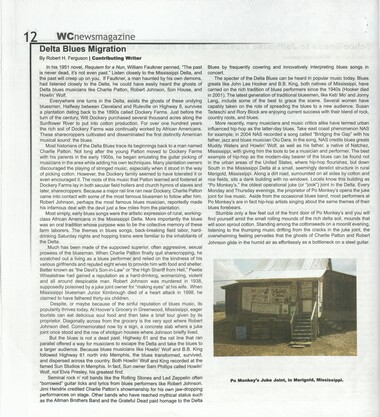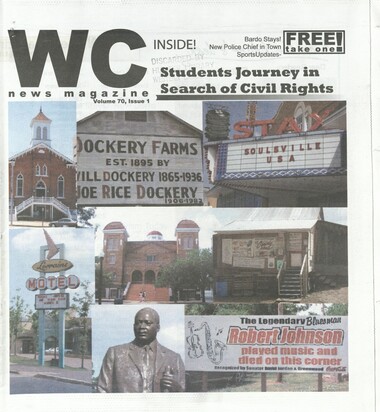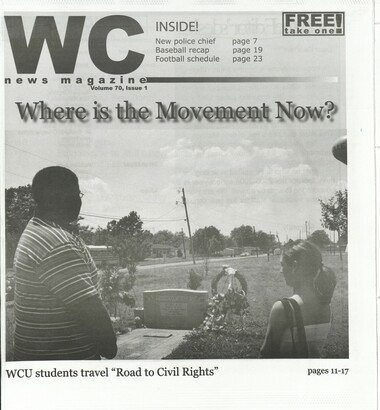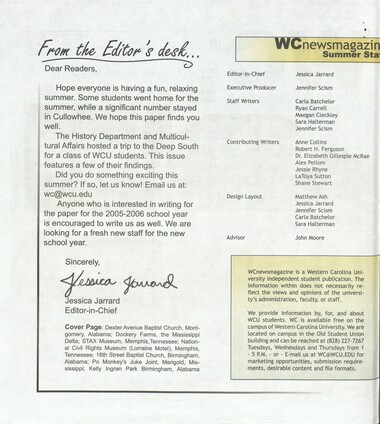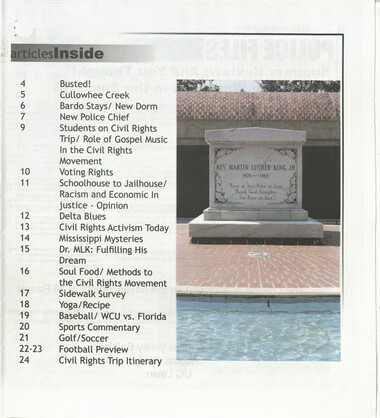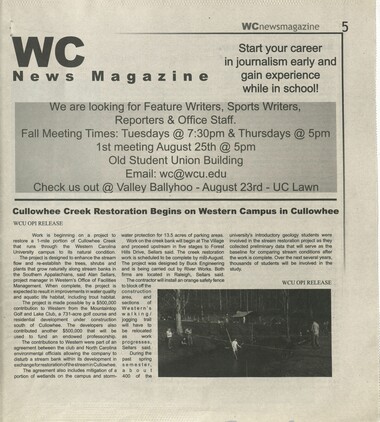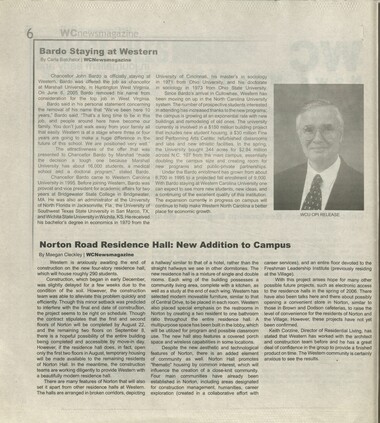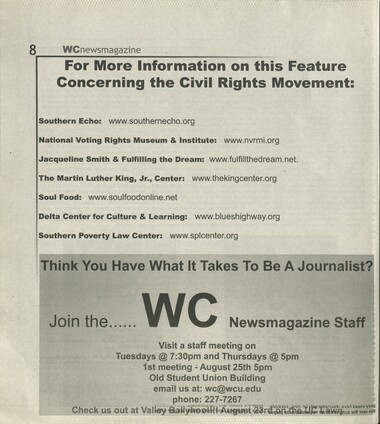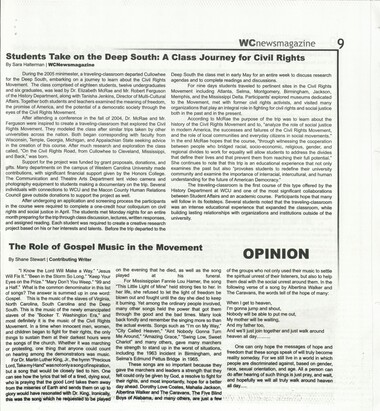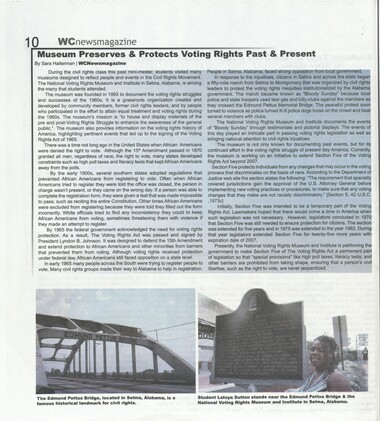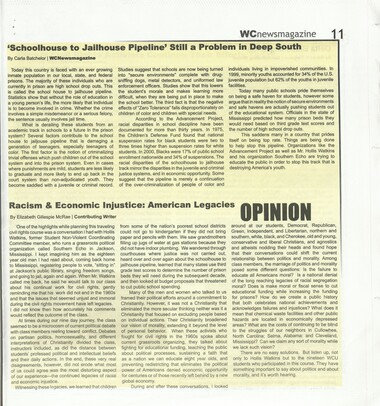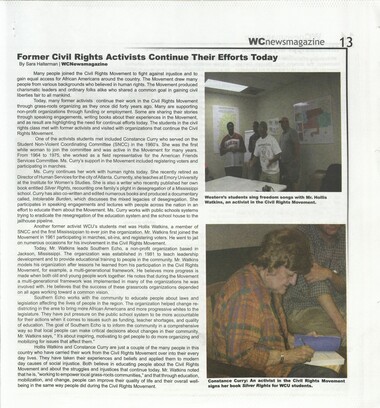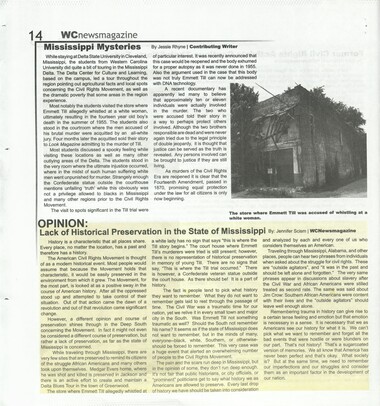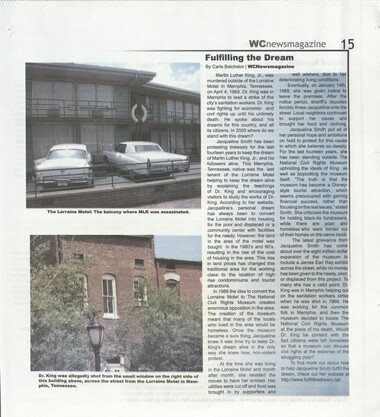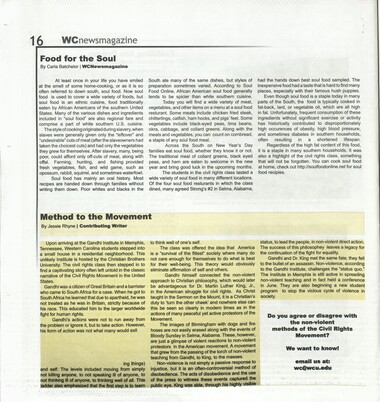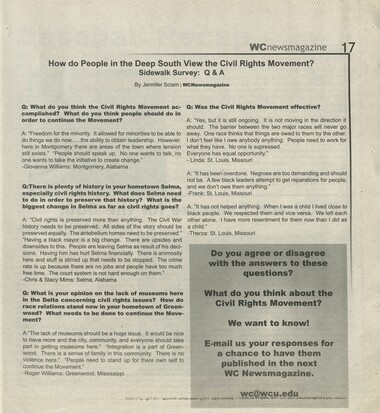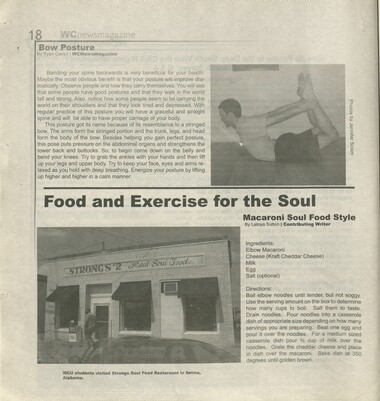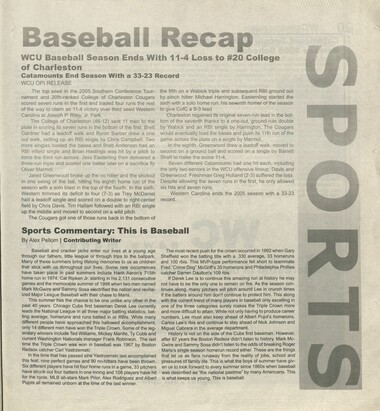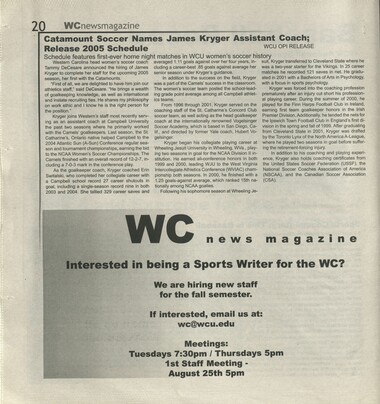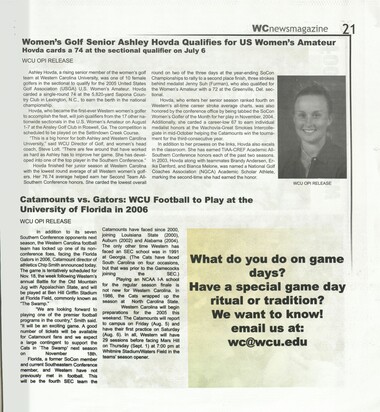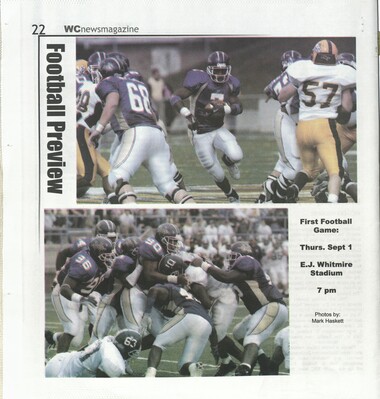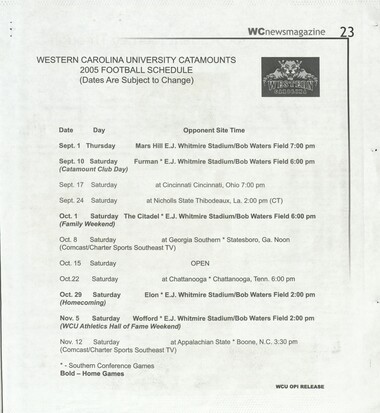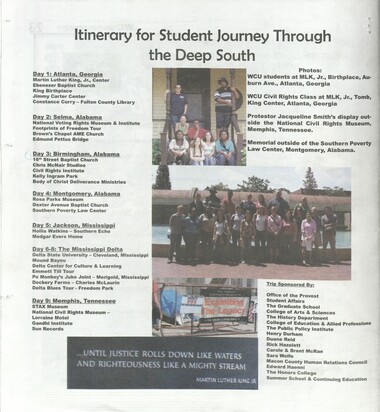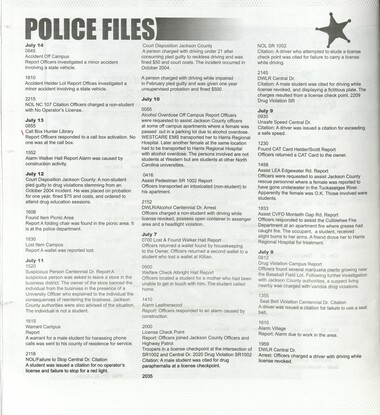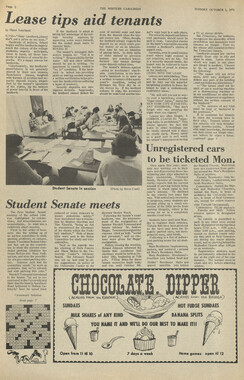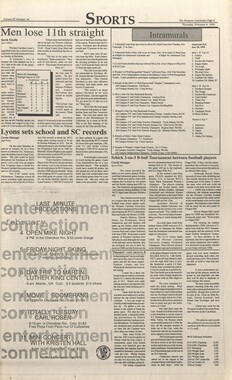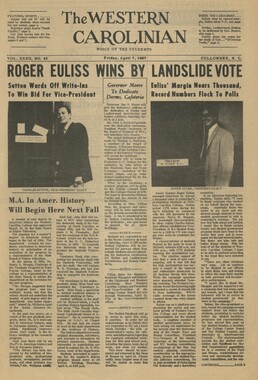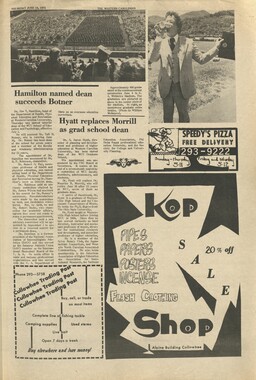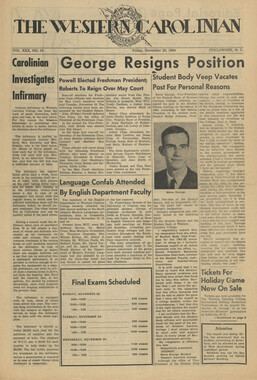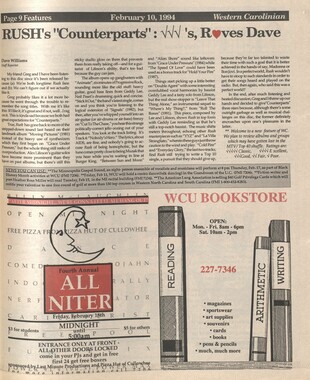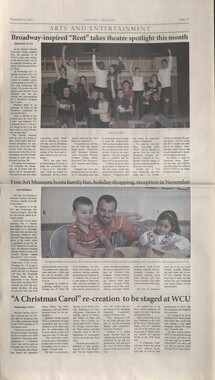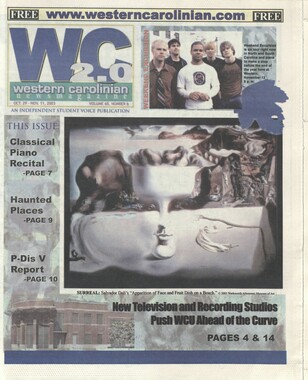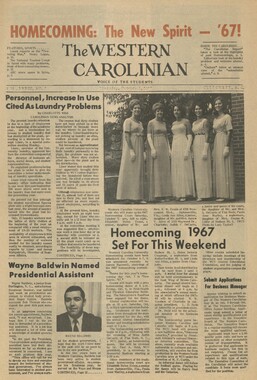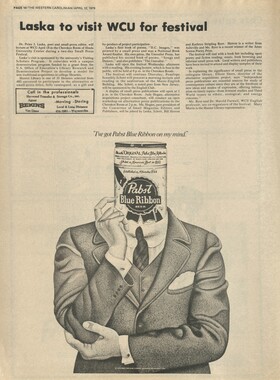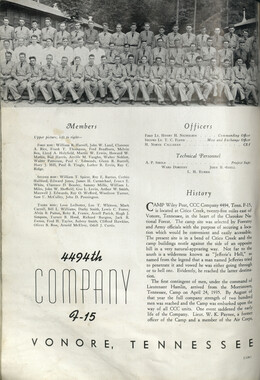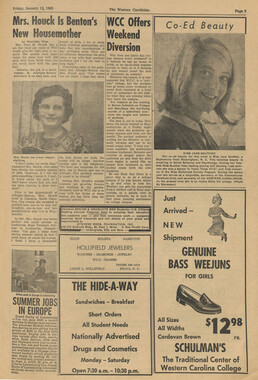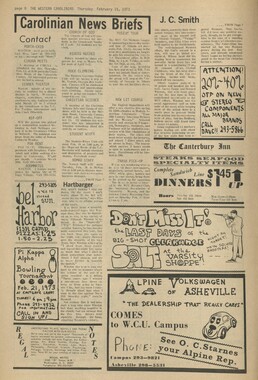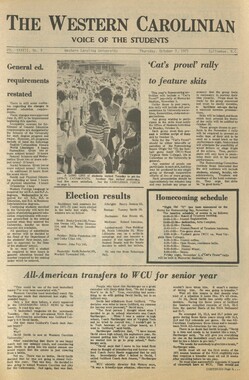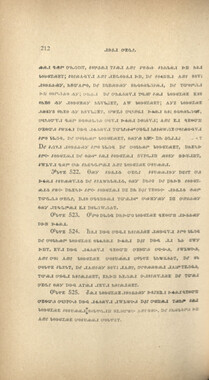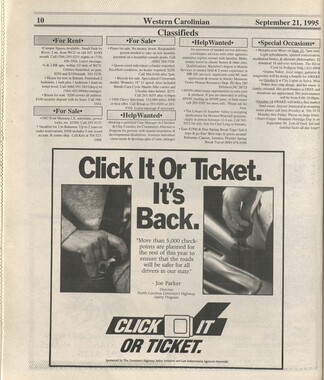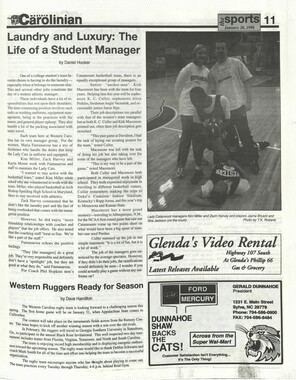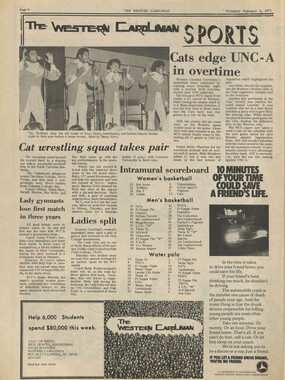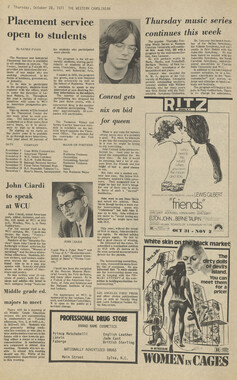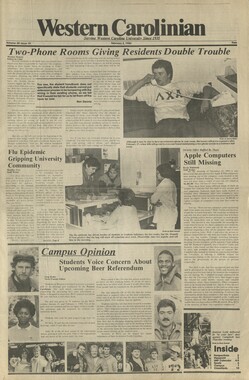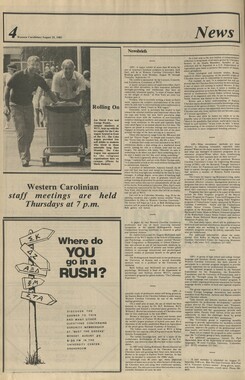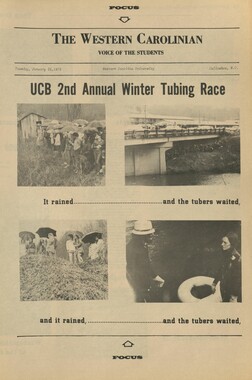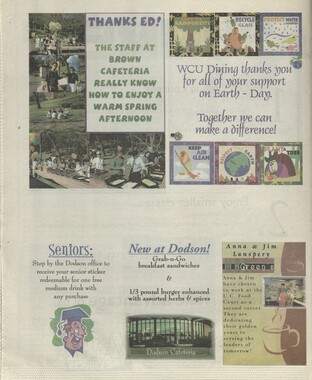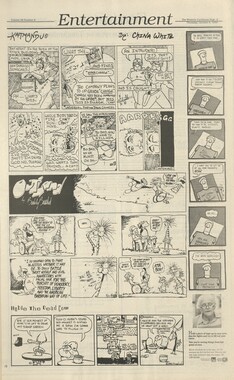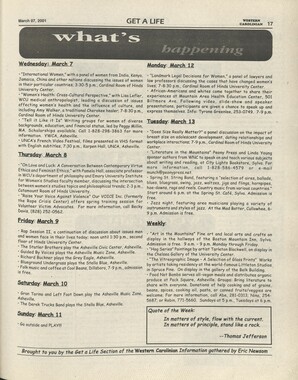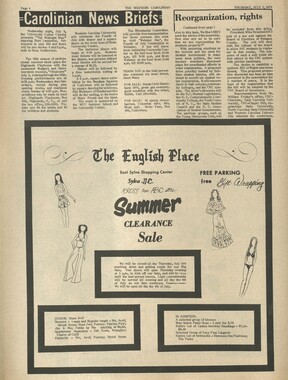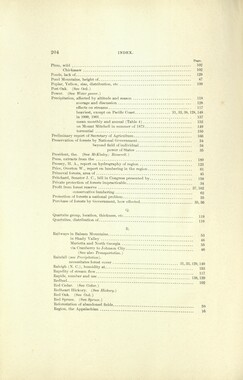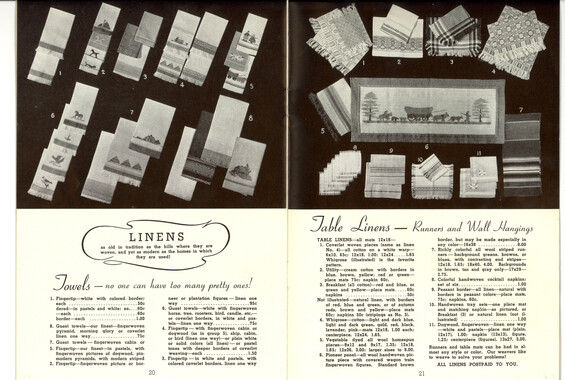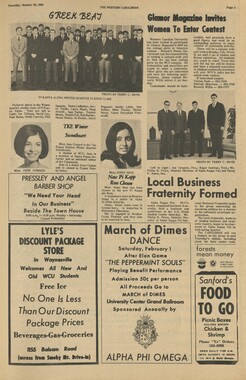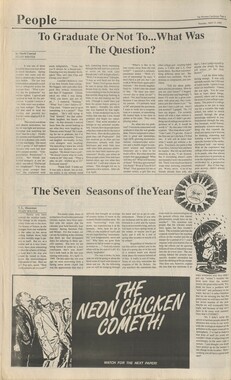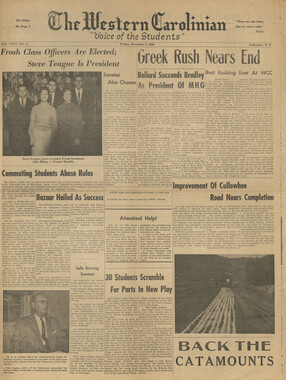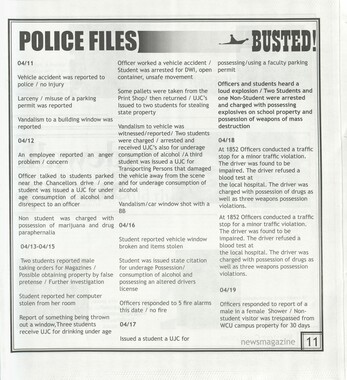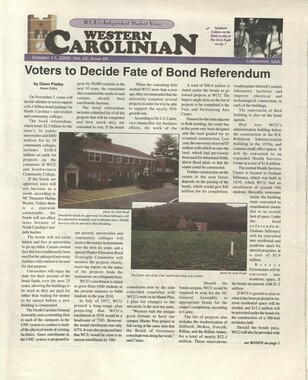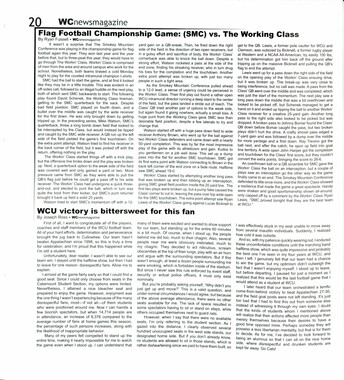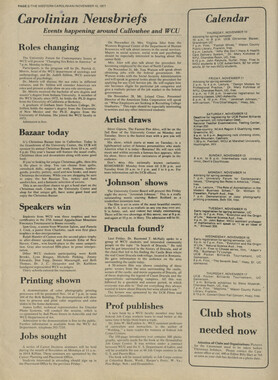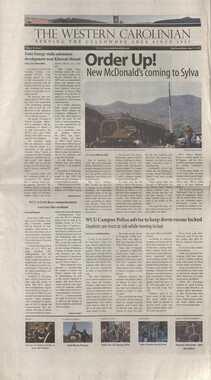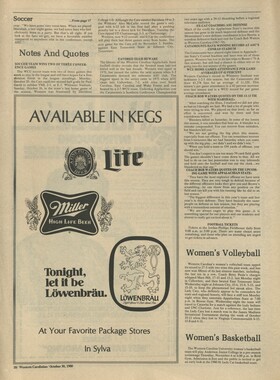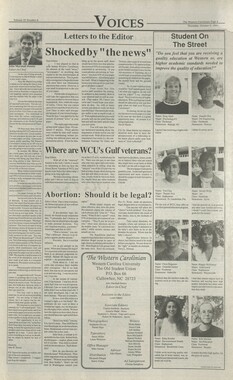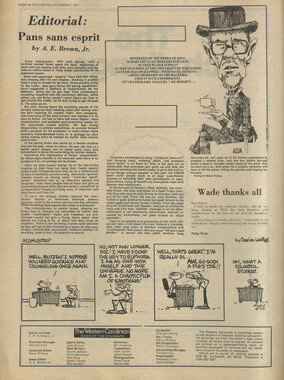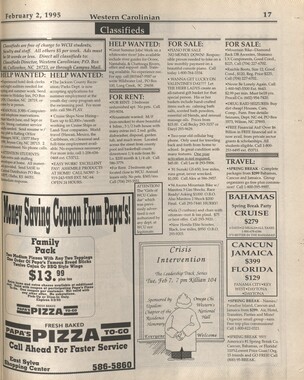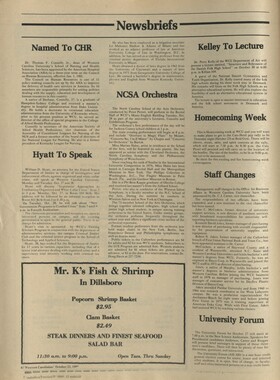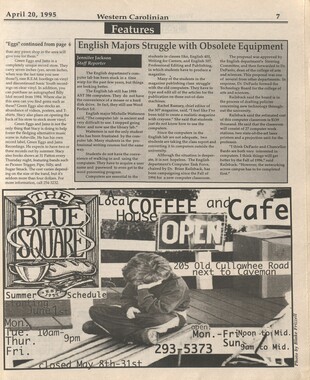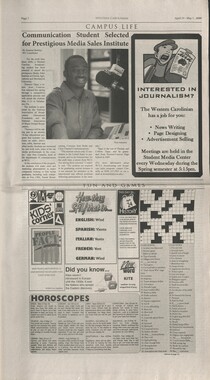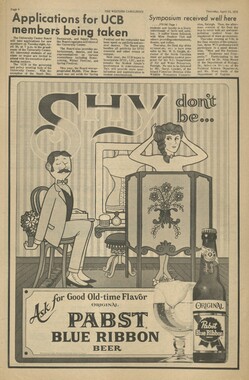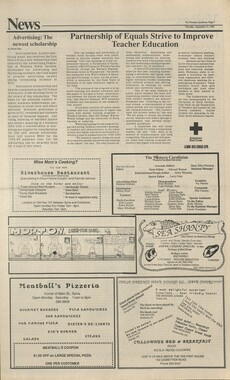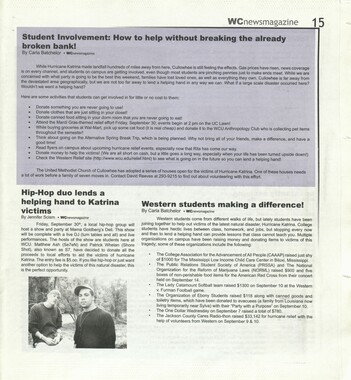Western Carolina University (21)
View all
- Canton Champion Fibre Company (2308)
- Cherokee Traditions (291)
- Civil War in Southern Appalachia (165)
- Craft Revival (1942)
- George Masa Collection (137)
- Great Smoky Mountains - A Park for America (3080)
- Highlights from Western Carolina University (422)
- Horace Kephart (973)
- Journeys Through Jackson (159)
- LGBTQIA+ Archive of Jackson County (89)
- Oral Histories of Western North Carolina (318)
- Picturing Appalachia (6617)
- Stories of Mountain Folk (413)
- Travel Western North Carolina (153)
- Western Carolina University Fine Art Museum Vitreograph Collection (129)
- Western Carolina University Herbarium (92)
- Western Carolina University: Making Memories (738)
- Western Carolina University Publications (2491)
- Western Carolina University Restricted Electronic Theses and Dissertations (146)
- Western North Carolina Regional Maps (71)
- World War II in Southern Appalachia (131)
University of North Carolina Asheville (6)
View all
- Allanstand Cottage Industries (62)
- Appalachian National Park Association (53)
- Bennett, Kelly, 1890-1974 (1463)
- Berry, Walter (76)
- Brasstown Carvers (40)
- Carver, George Washington, 1864?-1943 (26)
- Cathey, Joseph, 1803-1874 (1)
- Champion Fibre Company (233)
- Champion Paper and Fibre Company (297)
- Cherokee Indian Fair Association (16)
- Cherokee Language Program (22)
- Crowe, Amanda (40)
- Edmonston, Thomas Benton, 1842-1907 (7)
- Ensley, A. L. (Abraham Lincoln), 1865-1948 (275)
- Fromer, Irving Rhodes, 1913-1994 (70)
- George Butz (BFS 1907) (46)
- Goodrich, Frances Louisa (120)
- Grant, George Alexander, 1891-1964 (96)
- Heard, Marian Gladys (60)
- Kephart, Calvin, 1883-1969 (15)
- Kephart, Horace, 1862-1931 (313)
- Kephart, Laura, 1862-1954 (67)
- Laney, Gideon Thomas, 1889-1976 (439)
- Masa, George, 1881-1933 (61)
- McElhinney, William Julian, 1896-1953 (44)
- Niggli, Josephina, 1910-1983 (10)
- North Carolina Park Commission (105)
- Osborne, Kezia Stradley (9)
- Owens, Samuel Robert, 1918-1995 (11)
- Penland Weavers and Potters (36)
- Roberts, Vivienne (15)
- Roth, Albert, 1890-1974 (142)
- Schenck, Carl Alwin, 1868-1955 (1)
- Sherrill's Photography Studio (2565)
- Southern Highland Handicraft Guild (127)
- Southern Highlanders, Inc. (71)
- Stalcup, Jesse Bryson (46)
- Stearns, I. K. (213)
- Thompson, James Edward, 1880-1976 (226)
- United States. Indian Arts and Crafts Board (130)
- USFS (683)
- Vance, Zebulon Baird, 1830-1894 (1)
- Weaver, Zebulon, 1872-1948 (58)
- Western Carolina College (230)
- Western Carolina Teachers College (282)
- Western Carolina University (2008)
- Western Carolina University. Mountain Heritage Center (18)
- Whitman, Walt, 1819-1892 (10)
- Wilburn, Hiram Coleman, 1880-1967 (73)
- Williams, Isadora (3)
- Cain, Doreyl Ammons (0)
- Crittenden, Lorraine (0)
- Rhodes, Judy (0)
- Smith, Edward Clark (0)
- Appalachian Region, Southern (3032)
- Asheville (N.C.) (1945)
- Avery County (N.C.) (26)
- Blount County (Tenn.) (195)
- Buncombe County (N.C.) (1680)
- Cherokee County (N.C.) (283)
- Clay County (N.C.) (556)
- Graham County (N.C.) (238)
- Great Smoky Mountains National Park (N.C. and Tenn.) (525)
- Haywood County (N.C.) (3573)
- Henderson County (N.C.) (70)
- Jackson County (N.C.) (4925)
- Knox County (Tenn.) (35)
- Knoxville (Tenn.) (13)
- Lake Santeetlah (N.C.) (10)
- Macon County (N.C.) (421)
- Madison County (N.C.) (216)
- McDowell County (N.C.) (39)
- Mitchell County (N.C.) (135)
- Polk County (N.C.) (35)
- Qualla Boundary (982)
- Rutherford County (N.C.) (78)
- Swain County (N.C.) (2185)
- Transylvania County (N.C.) (270)
- Watauga County (N.C.) (12)
- Waynesville (N.C.) (86)
- Yancey County (N.C.) (72)
- Aerial Photographs (3)
- Aerial Views (60)
- Albums (books) (4)
- Articles (1)
- Artifacts (object Genre) (228)
- Bibliographies (1)
- Biography (general Genre) (2)
- Cards (information Artifacts) (38)
- Clippings (information Artifacts) (192)
- Copybooks (instructional Materials) (3)
- Crafts (art Genres) (622)
- Depictions (visual Works) (21)
- Design Drawings (1)
- Digital Moving Image Formats (2)
- Drawings (visual Works) (185)
- Envelopes (101)
- Exhibitions (events) (1)
- Facsimiles (reproductions) (1)
- Fiction (general Genre) (4)
- Financial Records (12)
- Fliers (printed Matter) (67)
- Glass Plate Negatives (381)
- Guidebooks (2)
- Internegatives (10)
- Interviews (823)
- Land Surveys (102)
- Letters (correspondence) (1045)
- Manuscripts (documents) (618)
- Maps (documents) (177)
- Memorandums (25)
- Minutes (administrative Records) (59)
- Negatives (photographs) (6090)
- Newsletters (1290)
- Newspapers (2)
- Notebooks (8)
- Occupation Currency (1)
- Paintings (visual Works) (1)
- Pen And Ink Drawings (1)
- Periodicals (194)
- Personal Narratives (10)
- Photographs (12977)
- Plans (maps) (1)
- Poetry (6)
- Portraits (4568)
- Postcards (329)
- Programs (documents) (181)
- Publications (documents) (2444)
- Questionnaires (65)
- Relief Prints (26)
- Sayings (literary Genre) (1)
- Scrapbooks (282)
- Sheet Music (2)
- Slides (photographs) (402)
- Songs (musical Compositions) (2)
- Sound Recordings (802)
- Specimens (92)
- Speeches (documents) (18)
- Tintypes (photographs) (8)
- Transcripts (329)
- Text Messages (0)
- A.L. Ensley Collection (275)
- Appalachian Industrial School Records (7)
- Appalachian National Park Association Records (336)
- Axley-Meroney Collection (2)
- Bayard Wootten Photograph Collection (20)
- Bethel Rural Community Organization Collection (7)
- Blumer Collection (5)
- C.W. Slagle Collection (20)
- Canton Area Historical Museum (2110)
- Carlos C. Campbell Collection (462)
- Cataloochee History Project (64)
- Cherokee Studies Collection (4)
- Daisy Dame Photograph Album (5)
- Daniel Boone VI Collection (1)
- Doris Ulmann Photograph Collection (112)
- Elizabeth H. Lasley Collection (1)
- Elizabeth Woolworth Szold Fleharty Collection (4)
- Frank Fry Collection (95)
- George Masa Collection (173)
- Gideon Laney Collection (452)
- Hazel Scarborough Collection (2)
- Hiram C. Wilburn Papers (28)
- Historic Photographs Collection (236)
- Horace Kephart Collection (861)
- Humbard Collection (33)
- Hunter and Weaver Families Collection (1)
- I. D. Blumenthal Collection (4)
- Isadora Williams Collection (4)
- Jesse Bryson Stalcup Collection (47)
- Jim Thompson Collection (224)
- John B. Battle Collection (7)
- John C. Campbell Folk School Records (80)
- John Parris Collection (6)
- Judaculla Rock project (2)
- Kelly Bennett Collection (1482)
- Love Family Papers (11)
- Major Wiley Parris Civil War Letters (3)
- Map Collection (12)
- McFee-Misemer Civil War Letters (34)
- Mountain Heritage Center Collection (4)
- Norburn - Robertson - Thomson Families Collection (44)
- Pauline Hood Collection (7)
- Pre-Guild Collection (2)
- Qualla Arts and Crafts Mutual Collection (12)
- R.A. Romanes Collection (681)
- Rosser H. Taylor Collection (1)
- Samuel Robert Owens Collection (94)
- Sara Madison Collection (144)
- Sherrill Studio Photo Collection (2558)
- Smoky Mountains Hiking Club Collection (616)
- Stories of Mountain Folk - Radio Programs (374)
- The Reporter, Western Carolina University (510)
- Venoy and Elizabeth Reed Collection (16)
- WCU Gender and Sexuality Oral History Project (36)
- WCU Mountain Heritage Center Oral Histories (25)
- WCU Oral History Collection - Mountain People, Mountain Lives (71)
- WCU Students Newspapers Collection (1923)
- Western North Carolina Tomorrow Black Oral History Project (69)
- William Williams Stringfield Collection (2)
- Zebulon Weaver Collection (109)
- African Americans (390)
- Appalachian Trail (35)
- Artisans (521)
- Cherokee art (84)
- Cherokee artists -- North Carolina (10)
- Cherokee language (21)
- Cherokee pottery (101)
- Cherokee women (208)
- Church buildings (190)
- Civilian Conservation Corps (U.S.) (111)
- College student newspapers and periodicals (2012)
- Dams (108)
- Dance (1023)
- Education (222)
- Floods (63)
- Folk music (1015)
- Forced removal, 1813-1903 (2)
- Forest conservation (220)
- Forests and forestry (1198)
- Gender nonconformity (4)
- Great Smoky Mountains National Park (N.C. and Tenn.) (181)
- Hunting (47)
- Landscape photography (25)
- Logging (122)
- Maps (83)
- Mines and mineral resources (9)
- North Carolina -- Maps (18)
- Paper industry (38)
- Postcards (255)
- Pottery (135)
- Railroad trains (72)
- Rural electrification -- North Carolina, Western (3)
- School integration -- Southern States (2)
- Segregation -- North Carolina, Western (5)
- Slavery (5)
- Sports (452)
- Storytelling (243)
- Waterfalls -- Great Smoky Mountains (N.C. and Tenn.) (66)
- Weaving -- Appalachian Region, Southern (280)
- Wood-carving -- Appalachian Region, Southern (328)
- World War, 1939-1945 (173)
Western Carolinian Volume 70 Number 01
Item
Item’s are ‘child’ level descriptions to ‘parent’ objects, (e.g. one page of a whole book).
-
-
12 | WCnewsmagazine Delta Blues Migration By Robert H. Ferguson | Contributing Writer In his 1951 novel, Requiem for a Nun, William Faulkner penned, The past is never dead, its not even past. Listen closely to the Mississippi Delta, and the past will creep up on you. If Faulkner, a man haunted by his own demons, had listened closely to the Delta, he could have easily heard the ghosts of Delta blues musicians like Charlie Patton, Robert Johnson, Son House, and Howlin Wolf. Everywhere one turns in the Delta, exists the ghosts of these undying bluesmen. Halfway between Cleveland and Ruleville on Highway 8, survives a plantation dating back to the 1890s called Dockery Farms. Just before the turn of the century, Will Dockery purchased several thousand acres along the Sunflower River to put into cotton production. For over one hundred years the rich soil of Dockery Farms was continually worked by African Americans. These sharecroppers cultivated and disseminated the first distinctly American musical sound: the blues. Most historians of the Delta Blues trace its beginnings back to a man named Charlie Patton. Not long after the young Patton moved to Dockery Farms with his parents in the early 1900s, he began emulating the guitar picking of musicians in the area while adding his own techniques. Many plantation owners discouraged the playing of stringed music, especially when it stood in the way of picking cotton. However, the Dockery family seemed to have tolerated it or even encouraged it. The roots of this music that Patton learned and fostered at Dockery Farms lay in both secular field hollers and church hymns of slaves and later, sharecroppers. Because a major rail line ran near Dockery, Charlie Patton came into contact with some of the most famous bluesmen to follow after him. Robert Johnson, perhaps the most famous blues musician, reportedly made his infamous deal with the devil just a few miles from the plantation. Most simply, early blues songs were the artistic expression of rural, working- class African Americans in the Mississippi Delta. More importantly the blues was an oral tradition whose purpose was to be the collective memory of these farm laborers. The themes in blues songs, back-breaking field labor, hard- drinking Saturday nights and hopping trains were familiar to the inhabitants of the Delta. Much has been made of the supposed superior, often aggressive, sexual prowess of the bluesman. When Charlie Patton finally quit sharecropping, he scratched out a living as a blues performer and relied on the kindness of his various girlfriends and reputed eight wives to provide him with food and shelter. Better known as the Devils Son-in-Law or the High Sheriff from Hell, Peetie Wheatstraw had gained a reputation as a hard-drinking, womanizing, violent and all around despicable man. Robert Johnson was murdered in 1938, supposedly poisoned by a juke joint owner for making eyes at his wife. When Mississippi bluesman Junior Kimbrough died of a heart attack in 1998, he claimed to have fathered thirty-six children. Despite, or maybe because of the sinful reputation of blues music, its popularity thrives today. At Hoovers Grocery in Greenwood, Mississippi, eager tourists can eat delicious soul food and then take a brief tour given by its proprietor. Diagonally across from the grocery is the very spot where Robert Johnson died. Commemorated now by a sign, a concrete slab where a juke joint once stood and the row of shotgun houses where Johnson briefly lived. But the blues is not a dead past. Highway 61 and the rail line that ran parallel offered a way for musicians to escape the Delta and take the blues to a larger audience. Because blues musicians like Howlin Wolf and B.B. King followed Highway 61 north into Memphis, the blues transformed, survived, and dispersed across the country. Both Howlin Wolf and King recorded at the famed Sun Studios in Memphis. In fact, Sun owner Sam Phillips called Howlin Wolf, not Elvis Presley, his greatest find. Seminal rock n roll bands like the Rolling Stones and Led Zeppelin often borrowed guitar licks and lyrics from blues performers like Robert Johnson. Jimi Hendrix credited Charlie Pattons showmanship for his own jaw-dropping performances on stage. Other bands who have reached mythical status such as the Allman Brothers Band and the Grateful Dead paid homage to the Delta Blues by frequently covering and innovatively interpreting blues songs in concert. The specter of the Delta Blues can be heard in popular music today. Blues greats like John Lee Hooker and B.B. King, both natives of Mississippi, have carried on the rich tradition of blues performers since the 1940s (Hooker died in 2001). The latest generation of traditional bluesmen, like Keb Mo and Jonny Lang, include some of the best to grace the scene. Several women have capably taken on the role of spreading the blues to a new audience. Susan Tedeschi and Rory Block are enjoying current success with their blend of rock, country roots, and blues. More recently, many musicians and music critics alike have termed urban influenced hip-hop as the latter-day blues. Take east coast phenomenon NAS for example; in 2004 NAS recorded a song called Bridging the Gap with his father, jazz and blues musician Olu Dara. In the song, NAS credits blues greats Muddy Waters and Howlin Wolf, as well as his father, a native of Natchez, Mississippi, with giving him the tools to be a musician and performer. The best example of hip-hop as the modern-day bearer of the blues can be found not in the urban areas of the United States, where hip-hop flourishes, but down South in the Mississippi Delta at a small, seemingly derelict structure in rural Merigold, Mississippi. Along a dirt road, surrounded on all sides by cotton and rice fields, sits a dank building with no windows. Locals know this building as Po Monkey's, the oldest operational juke (or jook) joint in the Delta. Every Monday and Thursday evenings, the proprietor of Po Monkeys opens the juke joint for live music. Aside from the occasional blues band, most performers at Po Monkey's are in fact hip-hop artists singing about the same themes of their blues forebears. Stumble only a few feet out of the front door of Po Monkeys and you will find yourself amid the small rolling mounds of the rich delta soil, mounds that will soon sprout cotton. Standing among the cottonseeds on a moonlit evening, listening to the thumping music drifting from the cracks in the juke joint, the overwhelming feeling pervades that the ghosts of Charlie Patton and Robert Johnson glide in the humid air as effortlessly as a bottleneck on a steel guitar. Po Monkeys Juke Joint, in Merigold, Mississippi.
Object
Object’s are ‘parent’ level descriptions to ‘children’ items, (e.g. a book with pages).
-
The Western Carolinian is Western Carolina University's student-run newspaper. The paper was published as the Cullowhee Yodel from 1924 to 1931 before changing its name to The Western Carolinian in 1933.
-
